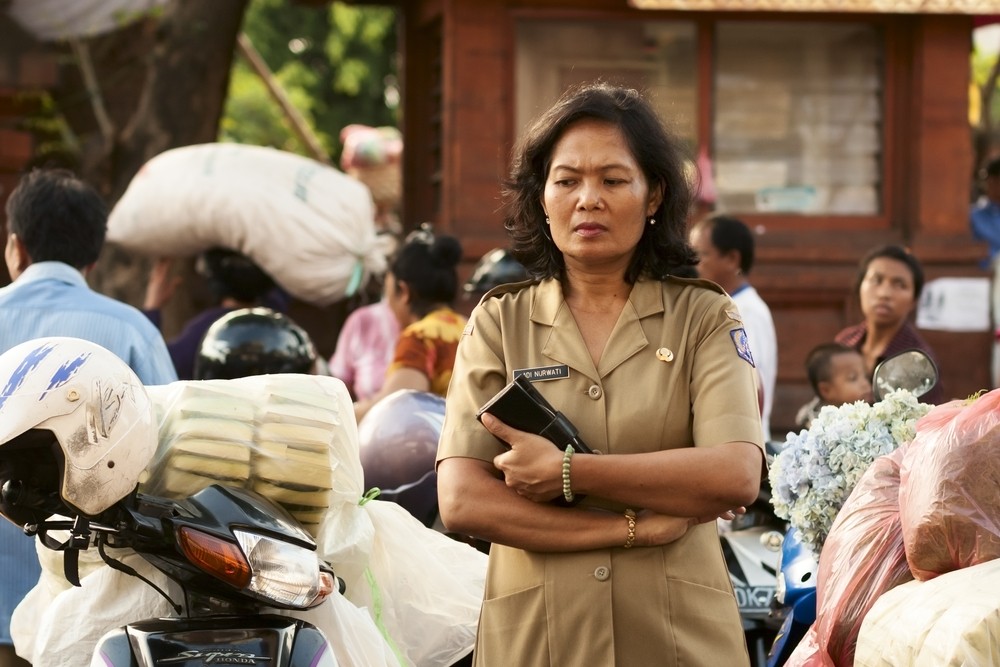Popular Reads
Top Results
Can't find what you're looking for?
View all search resultsPopular Reads
Top Results
Can't find what you're looking for?
View all search resultsCivil servants have mixed feelings over new antiradicalism measures
Some civil servants feel that a recently issued joint decree that prohibits civil servants from submitting "radical" social media posts could potentially violate their freedom of speech.
Change text size
Gift Premium Articles
to Anyone
A
recently issued joint decree aimed at curbing radicalism in government institutions has drawn a mixed reaction from civil servants.
The joint decree, issued on Nov. 12 and signed by 11 ministries and state bodies, prohibits civil servants from expressing opinions on social media that contain “hate speech” against Pancasila, the 1945 Constitution, the country’s motto of Bhinneka Tunggal Ika (Unity in Diversity) and the government.
It further says that civil servants cannot share posts that express opinions on such issues or show their approval for them by liking or commenting on any posts.
Some civil servants have expressed their dismay over the joint decree.
Ahmad Taufiq, a civil servant and active Twitter user with over 13,000 followers, told The Jakarta Post the decree could potentially violate freedom of speech, “especially since the rules seem open to multiple interpretations […] and those who enforce the regulations sometimes don’t understand the context of the rules they are enforcing.”
“For example, what do those officials mean by ‘radicalism’?” he added.
Ahmad told the Post about several tweets he posted shortly after the joint decree was signed.
Kesampingkan dulu soal mana arti radikal yang benar. Bahkan dengan arti radikal yang salah kaprah tetapi populer sekalipun, poin 1 sampai 11 semuanya tak ada yang menyerempet arti tersebut secara eksklusif. :)
— Ahmad Taufiq (@trendingtopiq) November 12, 2019
“Even with the popular but misguided definition of ‘radical,’ none of the points 1 through 11 [of the decree] come near the meaning [of radicalism],” he tweeted. “Meaning, those points can be violated by someone who is not radical at all.”
A civil servant at the Home Ministry who asked not to be named told the Post that the joint decree had the potential to be used as a government tool to repress civil servants.
“[The joint decree] regulates many subjects whose meanings and limits are not well-defined,” they said. “Before issuing the decree, the government should have been ready to provide the meaning, definition and limits of ‘hate toward Pancasila, the 1945 Constitution, and the NKRI [the Unitary State of the Republic of Indonesia].”
They also took issue with points 6 and 7 of the decree, which forbid civil servants from holding, participating or attending an event “that leads to insulting, insulting, inciting, provoking and hating Pancasila, the 1945 Constitution, Bhinneka Tunggal Ika, the NKRI and the government.”
“This clause is very flawed from a legal perspective because what is being judged is not a wrong action but just ‘leading’ [to a wrong action],” they said. “If it is legally flawed then it is reasonable for us to conclude that this joint decree is just a tool for government repression.”
Meanwhile, Anggit Suko Pamungkas, a civil servant candidate at the National Civil Service Agency, warmly welcomed the joint decree, saying it supported “the function of civil servants as the glue and unifier of the nation”.
“The creation of the task force and the website for reports will […] help the government in overseeing and controlling civil servants’ violations,” Anggit told the Post on Tuesday.
He added that he had already been very cautious in using social media since he joined the civil service, but that “not all civil servants understand this”.
“I hope the issuance of the joint decree can reaffirm that civil servants have to be aware of their role in the NKRI,” he said.
In conjunction with the issuance of the decree, the government also launched an online portal, aduanasn.id, for the public to report civil servants who allegedly violated the new rules.
The website has logged 77 reports just two weeks since its launch.
Communications and Information Ministry spokesperson Ferdinandus Setu said the reports consisted of 29 intolerance cases, 17 antigovernment cases, 11 cases on radicalism, three anti-Pancasila cases and 17 other cases.
Of the 77 reports, only 11 are being followed up on as they include attachments in the form of social media postings of the accused civil servants. The remaining reports are still being studied or have been deemed irrelevant.
Ferdinandus said the 11 ministries and state bodies did not follow up on many of the reports as they did not include sufficient evidence of hate speech.
“[If the civil servants are found guilty] they may face a light disciplinary action like a reprimand, or the harshest penalties of demotion or dismissal,” Ferdinandus told kompas.com. (kmt)










